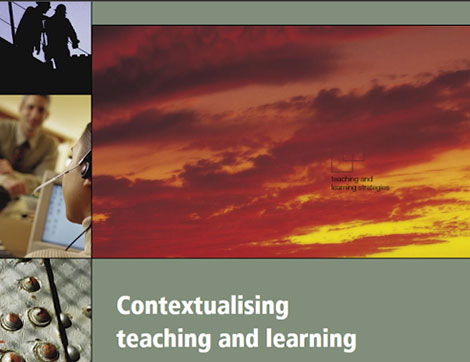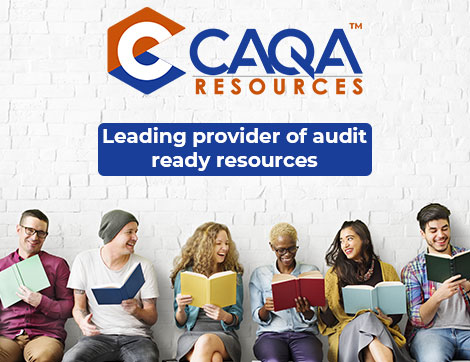There are many different ways to learn, and each has its own advantages and disadvantages. In this article, we’ll take a look at two of the most popular methods — online learning and offline learning — and compare their effectiveness.
Online learning is a type of distance learning that takes place over the internet. It’s a convenient way to study, as you can do it from anywhere in the world with an internet connection. You can also usually choose your own study schedule, which can be helpful if you have other commitments such as work or family.
However, one downside of online learning is that it can be quite isolating. You’re not physically present in a classroom with other students, so it can be difficult to form bonds and make friends. Additionally, you may not have access to the same resources as you would in a traditional learning environment, such as a library or experienced professors.
Offline learning, on the other hand, takes place in a physical classroom setting. This can be beneficial as it allows you to interact with other students and get immediate feedback from your instructors. Additionally, offline learning environments usually have more resources available, such as libraries and laboratories.
However, one downside of offline learning is that it can be more expensive than online learning, as you may need to pay for transportation and accommodation costs. Additionally, it can be less flexible than online learning, as you may need to stick to set class times and locations.
So, which type of learning is more effective? Let us explore.
Although online education had been a part of the collegiate experience for some time before to COVID-19’s peak, it had never been seen to such a degree as it was during that period. Educators all over the world have been put in the position of having to quickly become skilled with a number of different online platforms to be able to teach entire curriculum courses completely remotely. As a direct consequence of this, internet platforms reacted swiftly to the new advances to fulfil this new necessity. As a result, they swiftly added capabilities such as video-conferencing to the products and services they provide.
Education in both online and traditional settings
In spite of the fact that online education has been of tremendous assistance in keeping education going despite the closure of a large number of educational institutions, there remains a big amount of dispute between online and offline education.
Students can build habits of self-discipline and skills in time management through the use of online education, which also gives them access to a limitless amount of instructional materials. As long as they have access to the right resources and a dependable internet connection, students are free to determine their own pace of learning.
Offline education, on the other hand, is a more traditional kind of education that gives students the opportunity to interact face-to-face and routinely with their peers and teachers. Education that takes place without the use of modern technology is unaffected by technical concerns and provides students with a wonderful opportunity to establish and adhere to a consistent routine. However, in this so-called “digital era,” the likelihood of experiencing a disruption in one’s internet connection is extremely low. Learners, on the other hand, have the ability to download recorded classes whenever it is most convenient for them and participate in learning activities even when there is no instructor present.
The following is a list of several advantages that traditional learning does not have over online education:
You can learn at your own pace
One of the great things about online learning is that you can go at your own pace. If you need to take a break or review a concept, you can do so without feeling like you’re holding up the rest of the class. In a traditional classroom setting, it can be easy to feel like you’re falling behind if you don’t understand a concept right away.
You can tailor your learning experience to your individual needs
Another advantage of online education is that you can tailor your learning experience to your individual needs. If you’re a visual learner, you can find resources that cater to your learning style. If you prefer to learn by doing, there are plenty of online courses that offer hands-on learning experiences.
Classes taken via the internet are convenient.
The most obvious advantage of receiving an education online is how convenient it is. Because of advances in technology, it is now possible to receive an education without leaving the comfort of your own home and while wearing your favourite pair of slippers. You can go back and watch any videos that you skipped, and then you may catch up on the classes whenever you want. In a similar vein, you might make the most of your journey time by studying online while you are travelling back to your house, whether you are taking the bus or the train. To get started with online education, all you need is a device that connects to the internet (such a computer or a smartphone), an internet connection, and a platform that is designed for teachers.
Online classes are adaptive
With online classes, not only will you save time because you will not be required to travel to a physical location in order to participate in a class, but you will also have more flexibility in terms of selecting the most appropriate time to engage in training. You could also be able to find a Spanish tutor online who is willing to work with you at three in the morning. Last but not least, taking classes online gives you the flexibility to pursue your academic and professional goals at your own pace. If you have a busy work or family life, you can study at night or on the weekends when it’s convenient for you. You don’t have to worry about fitting a class into your schedule.
Online programmes are less expensive
The primary benefits of online classrooms include significant cost reductions for educational institutions as a result of the elimination of the requirement to reserve a physical place in order to deliver courses. Because of this, the learner will have to pay less for their classes. The requirement that you participate in actual classroom instruction will almost immediately drive up the costs associated with your education. When you take classes via the internet, you not only save money on the essentials like reading materials, but you also save money on other expenses like travel and food.
Online classes encourage increased interaction
Some people are of the opinion that the most practical and time-saving method of interaction is the more conventional form of learning that takes place in person. Despite this, there is no guarantee that this will always be the case. Someone who is too timid to raise a straightforward question in front of their entire class can now initiate a real-time, one-on-one conversation with their instructor. Students have the option to mute their microphones or turn off their webcams in order to participate in an online teaching session even if they do not choose to present themselves to the other members of the class.
You can access resources from anywhere in the world
One of the great things about online learning is that you can access resources from anywhere in the world. If you’re traveling or living in a different country, you can still take advantage of the same resources as someone who is taking a course in person.
You can learn from experts in their field
Another advantage of online education is that you can learn from experts in their field. Many online courses are taught by instructors who are leaders in their industry. This means that you’re getting the latest and greatest information from people who know what they’re talking about.
You can learn at your own pace
One of the great things about online learning is that you can learn at your own pace. If you need to review a concept or take a break, you can do so without feeling like you’re holding up the rest of the class. In a traditional classroom setting, it can be easy to feel like you’re falling behind if you don’t understand a concept right away.
Education can be obtained either offline or online, making the decision between the two options challenging. However, through the use of online education, both the teachers and the students are able to determine their own speed of learning, in addition to having the added flexibility of developing a schedule that is conducive to everyone’s needs. Because adjusting to an educational system that is delivered through the internet makes it possible to maintain a healthy balance between work and school, there is no need to make any sacrifices. Our methods of acquiring new abilities have also evolved alongside the development of new technology. Because of the internet, people who are interested in enhancing their knowledge and skills have access to a wide variety of resources and opportunities.
Well which one is better – It really depends on your individual needs and preferences. If you want a more flexible and affordable way to learn, then online learning might be the best option for you. But if you prefer face-to-face interaction and access to resources, then offline learning might be a better choice. Ultimately, the most important thing is to find a learning method that works for you.























